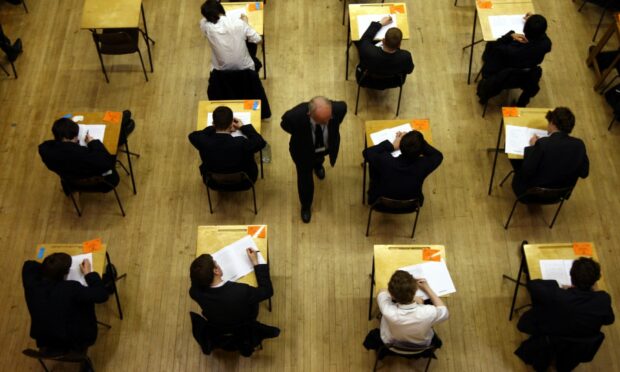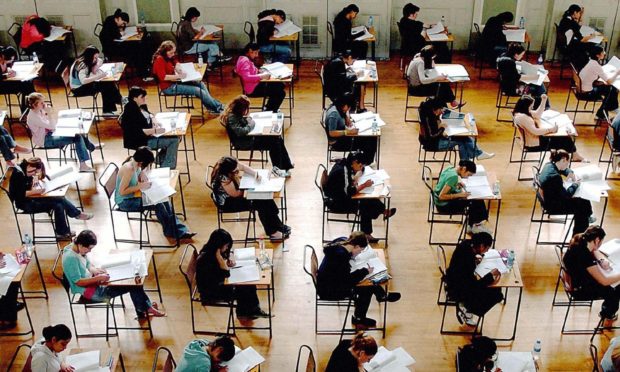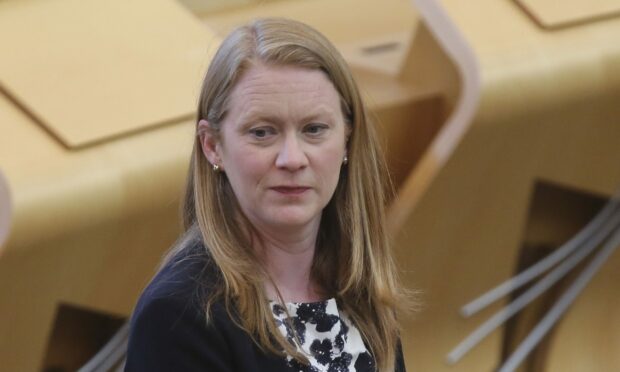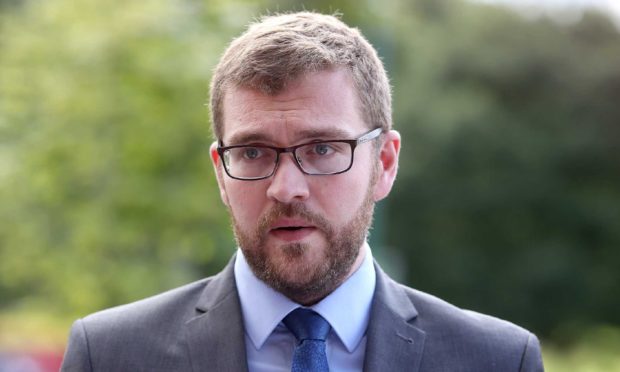A decision on whether school pupils can expect to sit exams in Scotland next year is due to be announced by Scottish ministers in August.
Education Secretary Shirley-Anne Somerville said the government would take the next few weeks to “think through” the issues involved, and consider the latest advice on the pandemic.
But she hoped to outline the “central planning assumption” at the start of the new school year.
Ms Somerville was speaking at Holyrood as she officially responded to a long-awaited report by the OECD (Organisation for Economic Co-operation and Development Organisation) on Scotland’s Curriculum for Excellence (CfE).
The government had already said that the beleaguered Scottish Qualifications Authority (SQA) would be scrapped and replaced with a new agency in the wake of the review.
The education secretary announced yesterday that Professor Ken Muir CBE, who was until recently the chief executive of the General Teaching Council for Scotland, would lead the work to replace the SQA.
He will start in August and his work will conclude after about six months.
Mr Muir and an advisory panel are also due to look at reforms to Education Scotland, including removing inspection powers from the agency.
As part of the government’s response, the Scottish Education Council will also be refreshed and reconvened, and a new “Children and Young People’s Education Council” will be created.
Exam results fiasco
The Scottish Government and SQA have been heavily criticised over their handling of examinations during the pandemic, including a humiliating U-turn last summer.
With attentions already turning to preparations for 2022, Ms Somerville told MSPs yesterday that she would signal the government’s intentions in August.
“We know that learners, teachers and lecturers are keen to understand how qualifications will be awarded in 2022,” she said.

“Feedback from the NQ21 group discussion suggests there are a range of views on this, and a recognition of the need to carefully reflect on and learn from the ongoing experience of this year.
“The examination diets in 2020 and 2021 were cancelled on the basis of public health advice, and I want to be in a position to confirm our central planning assumption for awarding qualifications in 2022 for the start of the school term in August, to give us as much certainty for learners, teachers and the system as possible.
“That will take account of the state of the pandemic.
“Last week the first minister committed to reviewing our approach to self-isolation for young people identified as contacts, and any changes here could have a significant bearing on the extent of disruption to individual learners in the school year, and in turn on our decision on whether to hold an exam diet or use an alternative model of certification.
“I know that many stakeholders support us taking the next few weeks to think through these issues, and to take account of the latest public health advice, before we confirm our central planning assumption at the start of the new school term.”
I know that many stakeholders support us taking the next few weeks to think through these issues, and to take account of the latest public health advice, before we confirm our central planning assumption at the start of the new school term.”
Oliver Mundell, education spokesman for the Scottish Conservatives, questioned Ms Somerville on the longer-term future of examinations, and a suggestion they could be scrapped completely.
“No government serious about raising standards in our schools can contemplate such a radical break from tradition,” he said.
“It would further diminish our international standing, and remove one of the last hallmarks of Scotland’s world-leading system.”
In response, the education secretary said: “The OECD are about to have a second report that will come out by the end of August which looks specifically at qualifications.
“I think it is fair, reasonable – and if I didn’t do this I’m sure Oliver Mundell would be one of the first ones to criticise me to do so – for the government to say that we’re open to having a discussion about what is in that report.
“Now, I don’t know what is in that report, but given the fact that we have said we have invited the OECD in to undertake a review, to open that review out, and for somehow for me to say that I’m not going to be open to what they suggest, would seem strange.”
The Scottish Government has accepted all 12 recommendations of the initial report by the OECD.
I want to understand fully their needs and listen to their suggestions on how we build on current strengths and how we might re-imagine, design and implement reforms into our education system that will truly respond to the future needs of every community and every child and young person.”
Professor Muir said: “Education systems across the world are changing as the world in which we live changes. I look forward to engaging widely with all stakeholders as part of my work.
“I want to understand fully their needs and listen to their suggestions on how we build on current strengths and how we might re-imagine, design and implement reforms into our education system that will truly respond to the future needs of every community and every child and young person.”


